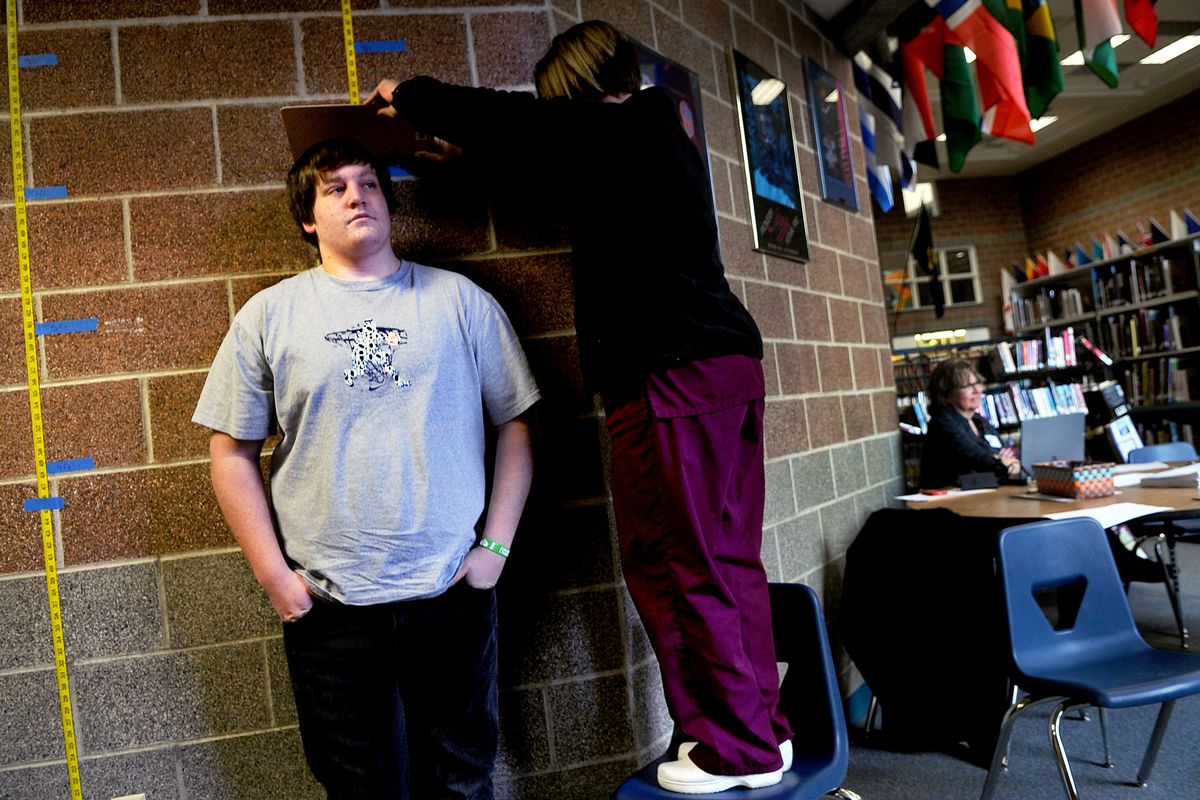Researchers screen for teens in pilot fitness program

Joe Cavanaugh is conscious about his weight, so the 17-year-old has been chatting with his friends about how to turn fat into muscle by lifting weights.
When the Lake City High School junior learned students were invited for consideration as participants in a teen health and research study, Cavanaugh jumped at the chance because he knew it could be just the motivation he needs.
“He came to me,” said Melinda Miller, a Coeur d’Alene School District nurse. “He’s motivated.”
The pilot study’s purpose is to find out how teens respond to a 12-week health and fitness program in which they work with fitness trainers, dietitians and nursing students. They will undergo physical fitness evaluations as well as nutrition and exercise counseling and wear a Bodybugg, which tracks calorie intake, type of food eaten and activities.
The grant-funded study’s collaborators, including employees from Kootenai Medical Center, University of Idaho and Washington State University, are at Lake City High School today to finish screening nearly 100 students in search of 20 study subjects.
Shawn Burke, co-owner of U Aim High Fitness in Post Falls, came up with the idea for the study. The personal trainer’s interest stems from research showing 1 in 3 teens are overweight.
“This whole design is to give kids a direction that they haven’t had before,” Burke said. “It also gives them a support system and goals that are attainable.”
Baylee Marquis, 15, and her friend, Delaney West, 16, are among the candidates being considered for the study.
“I’ve always wanted to be fit, but I’ve never been determined,” West said. “Now that I have Baylee and Ms. Miller, that’ll help.”
Burke’s experience working with teenagers shows they “really seemed to enjoy working with a professional, having a plan of attack and having accountability,” she said. “That’s a key part of the program.”
Before students are officially enrolled in the study, they will go through an informed consent process with a parent and study leaders, and will be medically screened, said Marian Wilson, Kootenai Medical Center’s clinical research coordinator, who helped obtain the grant.
In addition to physical measures, researchers will use surveys at the start and finish of the study to determine what the teens know about food and exercise, how confident they are about running a mile and how much time they spend sitting in front of a television or computer, Wilson said.
Burke, who is also a physical therapy assistant at Kootenai Medical Center, said participating in the study will be like “taking a 12-week health and fitness class. The grading will be on how they will change physically. We want them all to succeed. But they have to come away with some new knowledge.”
During the study, the teens will be able to download information from the Bodybuggs and “see instantly how many carbohydrates, proteins and fats they’ve had, and they will know how many calories they will need to burn based on what they ate,” Burke said.
The students will also take outings to learn how to exercise outside a gym, order healthy food at fast-food restaurants, and cook and shop for healthy food, among other things.
If the pilot is successful, Burke said he’d like to see the program integrated into the community for all teens. But for now, he’s happy just to get the idea off the ground.
“Our goal is to have 20 kids, but I’ve always said my goal is to change one kid. Change that vicious cycle that they’ve been living for a long time,” Burke said. “If we can change this generation, maybe it can help the generations to come.”